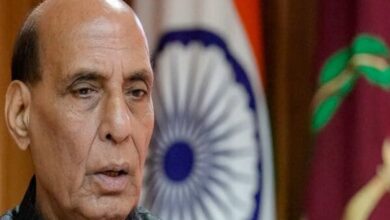Bumble chief responds to reports of misconduct at parent company

Update 4:30pm PT: “The responses are designed to obfuscate and deflect from the facts as borne out by the rigorous reporting,” a Forbes spokesperson told TechCrunch. “We stand by our reporting 100 percent.”
Following an extensive report in Forbes about Bumble’s parent company and its billionaire founder Andrey Andreev, the female-first dating app’s founder Whitney Wolfe Herd has issued a statement.
While Wolfe Herd says she was “mortified by the allegations” and “saddened and sickened to hear that anyone, of any gender, would ever be made to feel marginalized or mistreated in any capacity at their workplace,” the exec also detailed that “Badoo is currently conducting an investigation into the allegations, as well as compiling documentation to expose the factual inaccuracies that exist within the article.”
Wolfe Herd’s statement is provided in full at the end of the article. We’ve reached out to Forbes for comment.
The Forbes report, titled “Exclusive Investigation: Sex, Drugs, Misogyny And Sleaze At The HQ Of Bumble’s Owner,” focused largely on Badoo founder Andrey Andreev and the toxic culture at his company alleged by former employees. The report alleged an early culture at Badoo that ranged from “Ketamine infused afterparties” to engineering updates named after porn stars, and a video shared internally of an employee receiving oral sex.
The allegations went beyond portraying a sexist work environment and detailed racist attitudes of the Badoo founder:
While Badoo’s popularity grew in Europe and Latin America in the early 2010s, adoption was slow in the U.S. The American user base then was mostly Latino. Andreev would complain when he saw too many dark faces on the app—he believed it lowered the value of the brand and made it look cheap, says a former employee who worked on marketing campaigns. “Andrey was always making it clear that white was better,” says the former high-ranking executive. “If someone were to arrive a little bit late to the office and they were Latino or African, he would make comments like, ‘Well, what can you expect,’ as if people who were not white were not hardworking.”
Quoted on-record was the company’s former CMO Jessica Powell, who said she was fired because she didn’t fit into the company’s “patriarchal” environment. The Forbes report further detailed:
“While serving as the company’s CMO, I was told to act pretty for investors and make job candidates ‘horny’ to work for Badoo,” Jessica Powell, Badoo’s chief marketing officer from 2011 to 2012 says in an email. “I was once even asked to give a designer candidate a massage.” She says she refused to do so, adding that “female employees were routinely discussed in terms of their appearance.”
“When female staff spoke up, their concerns were ignored or minimized,” she adds, decrying a “misogynistic atmosphere.”
Wolfe Herd’s comments showcases a broader effort to distance the Bumble brand, which is closely aligned with her own personal brand, from the allegations against Badoo and its founder. It is difficult to separate Badoo and Bumble from a business perspective, as both fall beneath Andreev’s recently created MagicLab parent company, and Andreev reportedly owns 79% of Bumble.
Though Wolfe Herd’s comment strikes a conciliatory tone, “I would never challenge someone’s feelings or experiences,” regarding former employees that alleged negative experiences at Badoo, the company’s billionaire majority stakeholder Andrey Andreev was more direct in his response to those quoted on-record: “There are many ways to promote a fictional book in order to attract attention, and Jessica is a very talented marketing professional,” he said in a statement to Forbes, noting that Powell had recently released a satirical novel.
Responding to Andreev’s statement on Twitter, Powell said, “We’ve all seen the way people try to cut down women who come forward, the way companies craft false narratives of bad behavior and try to make it seem like we were bad at our jobs or troublemakers and should not be listened to.”
A statement from MagicLab given to Business Insider aimed to discredit Forbes reporter Angel Au-Yeung: “We are extremely disappointed in the reckless reporting of the Forbes reporter. Not a single current employee is quoted, our fact-check corrections were largely ignored, and the journalist refused to talk to dozens of former and current employees who came forward to counter the sensationalist narrative of only a few former disgruntled employees.”
The statements from Andreev, MagicLab and Wolfe Herd utilize language that simultaneously takes responsibility for “anything that could have taken place” and portrays a desire to hear from marginalized employees — while also seeking to introduce doubts about the story and its sources.
For Bumble, the association with the alleged toxic culture and Andreev’s alleged discriminatory attitudes in this report could be dangerous to the brand largely because of the reputation Bumble has publicly built for itself as being a platform that puts female safety at the forefront.
“…I would never challenge someone’s feelings or experiences. I offered to the reporter to extend my contact info to anyone who felt their experience was negative and said I would be an ally and open ear to them. That offer still stands,” Wolfe Herd said in the statement. “As a woman who has been through dark times, please know that I am deeply sorry for anything that could have taken place that made anyone feel uncomfortable before my time building Bumble. And know that I feel personally responsible by association for the well-being of each and every team member in the group, regardless of what company or what office around the world, from the past or the present.”
Wolfe Herd’s full statement:
All of us at Bumble are mortified by the allegations about Badoo (Bumble’s majority owner) from the years before Bumble was born, as chronicled in the Forbes story. I am saddened and sickened to hear that anyone, of any gender, would ever be made to feel marginalized or mistreated in any capacity at their workplace. From my time speaking with the reporter, I was only able to share my personal experiences, which have been nothing but positive and respectful, ranging from 2014, before Bumble existed, and during the 5 years since. To this day, we at Bumble have never seen or heard of any of this behavior from any team members, and if we had we would have never tolerated it. However, I would never challenge someone’s feelings or experiences. I offered to the reporter to extend my contact info to anyone who felt their experience was negative and said I would be an ally and open ear to them. That offer still stands. As a woman who has been through dark times, please know that I am deeply sorry for anything that could have taken place that made anyone feel uncomfortable before my time building Bumble. And know that I feel personally responsible by association for the well-being of each and every team member in the group, regardless of what company or what office around the world, from the past or the present. Badoo is currently conducting an investigation into the allegations, as well as compiling documentation to expose the factual inaccuracies that exist within the article. I’d like to take the opportunity to clarify that I was never copied on any email from these allegations, as Forbes suggested. I learned of the majority of these allegations at the same time as the public. We at Bumble remain fiercely committed to our mission, while being openly apologetic to anyone who feels our mission is compromised. We assure you that we would never conduct business in a manner contradictory to our values and would never tolerate the type of toxic behavior described by Forbes.
Source: TechCrunch




